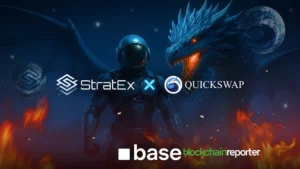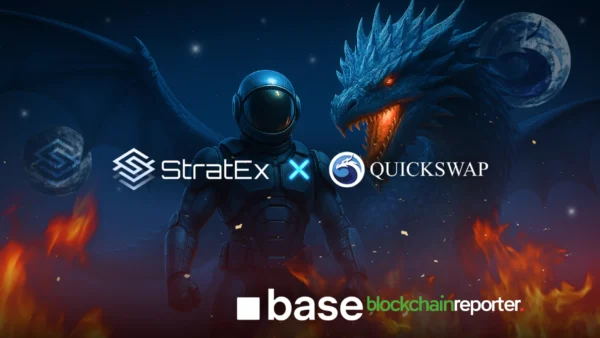
SubQuery has announced its collaboration with Japan Open Chain (JOC), marking a significant milestone in Japan’s blockchain technology and data management. This partnership introduces SubQuery’s advanced data indexing solutions to the JOC ecosystem, offering a powerful tool for developers and enhancing the Japanese blockchain market into a new increased innovation and efficiency.
SubQuery Advances Japan’s Crypto Infrastructure
Japan Open Chain is a leading-edge blockchain platform that works perfectly with Ethereum technology, specifically designed for business use. It’s run by a group of top Japanese companies and is perfectly suited for big business projects and government use, due to its strong and dependable setup. By teaming up with SubQuery, known for its quick and efficient way of organizing blockchain data, Japan is making it easier than ever for developers to work with blockchain information. This collaboration is a big deal because it means developers can quickly access and manage data, which can really speed up the process of creating new and exciting apps.
SubQuery has made a name for itself by offering a smart solution that makes handling blockchain data much simpler. This is great for developers because it means they can spend more time coming up with cool new apps instead of getting stuck on the complex parts of managing data. The partnership between SubQuery and Japan Open Chain shows SubQuery’s dedication to helping developers to enhance the Web3 tech in Japan.
Hidekazu Kondo, the Founder of Japan Open Chain, emphasized the significance of this collaboration, stating, “Incorporating SubQuery into our platform accelerates data access for developers on Japan Open Chain, streamlining their experience within our growing ecosystem. This empowers them to build more dynamic projects more easily and accurately on a public chain operated by a leading company.”
SubQuery’s approach to data indexing is not just about speed; it’s about providing a comprehensive and efficient experience for developers. This includes offering an open-source SDK, extensive tools, thorough documentation, and dedicated developer support. Furthermore, Japan Open Chain benefits from SubQuery’s enterprise-level managed service, which boasts infrastructure capable of handling hundreds of millions of requests daily. This level of support is crucial for developers aiming to build scalable and robust applications on the blockchain.
Sam Zou, Founder and CEO of SubQuery, shared his enthusiasm for the partnership, saying, “Excited to announce our integration support with Japan Open Chain. Our indexing service provides advanced tools, empowering their community to innovate and drive Web3 adoption in Japan.”
JOC Charges Ahead With Robust Offerings
SubQuery’s technology enables efficient and fast indexing of blocks, transactions, and logs, which is vital for developers who need to work with clean, indexed data. This can significantly reduce development time and increase the agility with which new features and applications can be brought to market. Moreover, SubQuery’s commitment to flexibility and developer control allows for a more tailored approach to project deployment, with features like external API calls, library imports, and automated denial of service (DOS) mitigation controls.
The Japan Open Chain stands out because it’s completely compatible with Ethereum’s blockchain, meaning any tools or smart contracts designed for Ethereum can work without any changes needed. Even though it matches *ETH* in compatibility, it uses a different system to verify transactions, called Proof of Authority, instead of Ethereum’s Proof of Stake method.
The Japan Open Chain has addressed the challenge commonly associated with the Proof of Authority algorithm, which is the concentration of validators, by choosing its validators from among prestigious Japanese corporations. This group includes 21 highly reputable companies such as Sony Group, NTT Group, Dentsu Group, top universities, and other leading firms based on sales in Japan.
To guarantee a varied group of validators, the plan is to include not just major corporations but also credible companies involved in cryptocurrency and innovative startups that are expected to play a significant role in the ecosystem moving forward.









